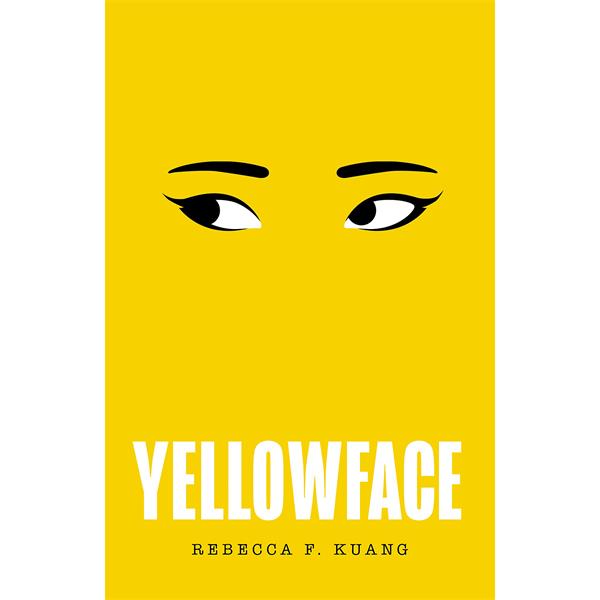
Yellowface by Rebecca F. Kuang is a gripping and thought-provoking novel that explores issues of identity, cultural appropriation, and the murky ethics of the publishing industry. In this darkly satirical narrative, Kuang examines the consequences of cultural theft and the lengths to which individuals will go to claim fame and success. With sharp commentary on the commodification of marginalized voices, Yellowface is a timely and powerful exploration of racism, privilege, and the complexities of storytelling.
Table of Contents
TogglePlot Overview
The novel follows June Hayward, a white author who, after the sudden death of her Chinese-American friend and fellow writer, Athena Liu, steals Athena’s unfinished manuscript. June, who has always lived in the shadow of Athena’s success, decides to publish the novel as her own under a pseudonym, claiming to be the author of a work that tells the story of Chinese history. As the book becomes a bestseller, June must navigate the increasingly complicated web of lies, guilt, and deceit that she has woven.
As June’s career skyrockets, the story delves into her internal conflict—her desire for recognition, her feelings of inadequacy, and the ethical compromises she makes to maintain her fabricated identity. The novel explores the tension between June’s ambition and the growing realization that she is profiting off of a culture that is not her own, leading to a harrowing exploration of the consequences of cultural appropriation.
Themes and Social Commentary
At its core, Yellowface is an exploration of the power dynamics that govern the publishing world and society at large. The novel takes aim at the exploitation of marginalized voices, showing how cultural appropriation often serves to enrich those who are already in positions of privilege. Kuang critiques the commodification of “diversity” in literature, where authors of color are often tokenized, while white authors can reap the benefits of writing about experiences they have no true connection to.
The book also addresses the themes of identity and authenticity. June’s transformation from a struggling, overlooked writer into a celebrated literary figure is steeped in lies that challenge her own sense of self-worth. As she adopts Athena’s identity, she grapples with her own insecurities and realizes how much she is willing to sacrifice to maintain her career, even as it erases a more authentic voice. Kuang examines the dangerous allure of fame and recognition, particularly for those who feel overlooked or disenfranchised, and how this thirst for success can blur moral boundaries.
Character Development
June Hayward is a morally complex protagonist. At first glance, she might appear to be a sympathetic character, driven by ambition and insecurity, but as the story progresses, her actions become increasingly problematic. The novel forces readers to confront the uncomfortable truth that June’s desires and motivations are driven by privilege, entitlement, and a profound lack of understanding of the harm she causes.
Through June, Kuang masterfully depicts the internalized racism and self-deception that often accompany cultural appropriation. Her guilt and justifications are palpable, and the character’s psychological unraveling as her lies catch up to her is both unsettling and tragic. The character of Athena, though deceased for most of the novel, serves as a poignant contrast to June, symbolizing the voice that was silenced and erased in the process of cultural theft.
Writing Style and Pacing
Rebecca F. Kuang’s writing is sharp, incisive, and immersive. She expertly blends elements of literary fiction with a psychological thriller, maintaining a pace that keeps readers on edge. The narrative is suspenseful, with a growing sense of unease as June’s actions begin to unravel. Kuang’s prose is engaging, and she does an excellent job of navigating complex themes without being didactic, allowing the story to speak for itself.
The pacing is brisk, with the tension building as June’s deception becomes harder to maintain, leading to a devastating climax. The novel’s structure—told from June’s perspective with snippets of Athena’s writing and social media posts—adds to the suspense and provides insight into the characters’ contrasting worlds.
Strengths and Weaknesses
Yellowface’s biggest strength lies in its exploration of relevant and complex themes, particularly cultural appropriation and identity, with a biting critique of the publishing world. Kuang’s ability to create a morally ambiguous protagonist makes for an engaging and thought-provoking narrative. The novel’s social commentary is timely, as it reflects current discussions about who gets to tell certain stories and who benefits from them.
However, some readers may find June’s character to be difficult to empathize with, as her actions are often deeply selfish and harmful. While this lack of empathy is deliberate on Kuang’s part, it may make the novel a challenging read for those who prefer protagonists with more redeeming qualities. Additionally, the story’s pace may feel relentless at times, especially as the tension between June’s guilt and her actions escalates.
Conclusion
Yellowface is a masterful and unsettling novel that delves into the complexities of cultural appropriation, identity, and the moral compromises we make in the pursuit of success. Kuang’s sharp critique of the publishing industry and the commodification of marginalized voices makes this a timely and essential read. With its morally complex protagonist, timely themes, and haunting narrative, Yellowface is a book that will leave readers questioning the ethical boundaries of storytelling and the price of fame.
Rating: 4.5/5
A brilliantly written, thought-provoking novel that challenges readers to consider the ethics of cultural appropriation and the cost of personal ambition, Yellowface is an unsettling yet essential read for anyone interested in literature, identity, and social justice.





